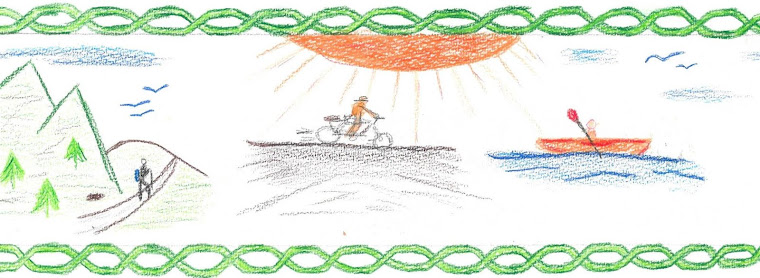FOR AN UPDATED AND REVISED VERSION, GO TO THIS LINK
PREFACE:
I have usually taken the
Sunday after Christmas as a vacation Sunday and therefore have rarely had to
preach on these troubling texts. How
will you deal with the juxtaposition or so many themes: God’s steadfast love, praise
of God, the suffering of God’s chosen, atonement, sacrifice, death of innocent children, and linguistic and
storytelling gymnastics to show the fulfillment FIRST READING - ISAIAH 63:7-9
63:7 Can you recount all the gracious deeds and praiseworthy acts of the LORD? What are they? What is the difference between mercy and steadfast love?
63:8 In verse 7 Isaiah speaks in the
first person plural of “us”, but in verse 8 shifts to the third person “they”
and “their”. Why the shift? What difference does it make?
63:9 I like that “It was no messenger or
angel” but the LORD’S presence that saved them.
Remember, this is before Christ!
How was the LORD present if not through an intermediary?
Here is a Psalm that can be adapted for use as a Call to Worship if I ever saw one!
148:1 Is it stating the obvious to
identify this as a “praise” psalm.
148:2 This is the second time (and the
second reading) that angels are mentioned.
What is “all his host”?
148:3 How do the sun, moon and shining
stars praise?
148:4 What waters are above the
heavens? Must we buy into this pre-Copernican
cosmology to interpret this Psalm?
148:5 How is the name of the LORD to be
praised when it is not pronounced?
148:6 What are the bounds of the highest
heavens and the waters above the heavens?
148:7 Even though, or perhaps because, I
am a kayaker and a sailor, I can more easily accept that the actual sun, moon
and stars praise the Lord than I can accept “sea monsters” praising the Lord.
148:7-10 How can creation continue to praise
the LORD if humans pollute and destroy it?
Does Rachel Carson’s “Silent Spring” have anything to say regarding
these verses?
148:8 These verses might work for the
First Sunday of Christmas in the northern hemisphere, but what about the
southern hemisphere?
148:9 he hills are figuratively alive
with the sound of music, praise music
148:11 Now we transition from the natural
world to the political realm.
148:12 I like the gender and age
inclusiveness of this verse.
148:13 What is “the name of the
Lord”? Dare we write it? Dare we speak it? If not, how do we praise and exalt it?
148:14 What is “a horn” and what does it
symbolize?
2:10 What a bummer! From the joy and celebration of Christmas a mere four days ago we now get sufferings. The Christ child has just been born and already we are hearing about his sufferings.
2:11
What is the meaning of sanctification? Why would Jesus be ashamed?
2:12-13 Where did these quotes come from?
2:14 Can we read/teach/preach this
without personifying “the devil”?
2:15 Can we be freed from the fear of
death without being freed from death?
2:16 In the context of this verse, who
are the descendants of Abraham?
2:17 What was the function of the high
priest? Is “sacrifice atonement” the only understanding of atonement?
2:14-18 A fairly theological exposition
of the incarnation, which is probably why this passage was chosen for the First
Sunday After Christmas, but we still end up with suffering. The distance from the cradle to the cross,
both in terms of geography and time, is not much at all.
2:13 In Matthew, how many times does an Angel appear to Joseph in a dream? Has an angel of the Lord ever appeared to you in a dream? Why Egypt? John Shelby Spong has an opinion about why Egypt? Why would Herod want to destroy the child Jesus?
2:13-14 Could this story be an example of
Midrash? Spong thinks so.
2:15 Could there have been another
theological reason for Jesus going to Egypt other than fulfilling of prophecy? What verse is being quoted?
2:16 Death in the slaughter on the
innocents intrudes into the otherwise bucolic narrative of Christmas. Why did Herod kill all children as old as two
years?
2:17-18 So all the infants were killed
just so that prophecy could be fulfilled?
Could be another example of Midrash?
2:19
Another angel, another dream, same old Joseph!
2:20 Why the plural “those” when only
Herod was seeking to kill Jesus.
2:22 How many Dreams has Joseph
experienced now? With so many dreams mentioned in the Bible, why does the
church say so little about dreams, dreaming, and dream interpretation (other
than Jungians)? Why would Joseph be told
in one dream to go to Israel and in a subsequent be warned not to go to
Israel?
2:23 Why is the author of Matthew so eager
to note the fulfillment of prophecy? It
seems that so far that is the purpose of this Gospel—to show the fulfillment of
prophecy.
2:13-23 It seems odd that Mary and Jesus
are never mentioned by name but are referred to as “the child and his mother”.
